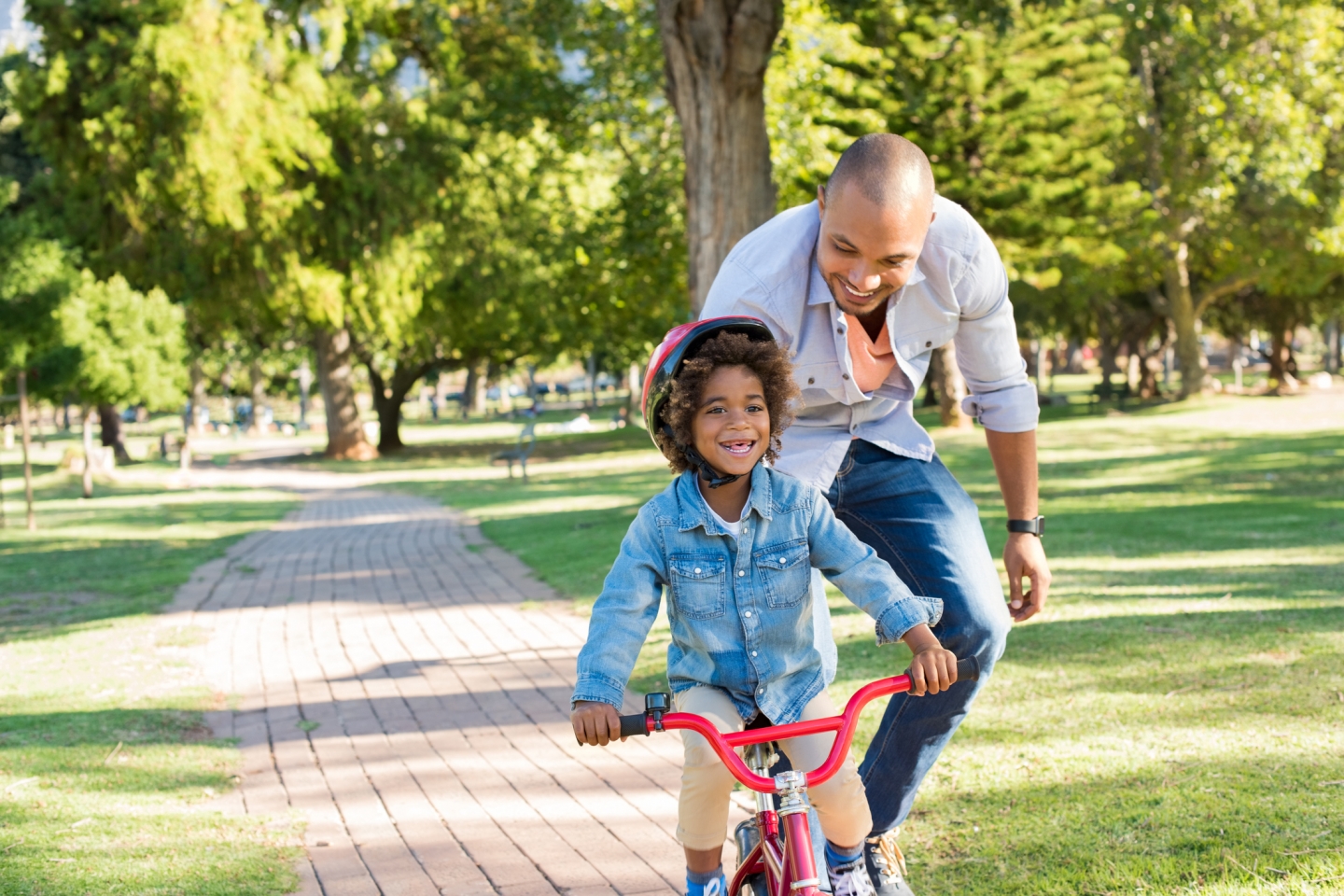
Learn ways to keep your kids safe and healthy while you enjoy the summer fun together! Here are a few helpful tips for parents about sports, injuries, sun, and more.
Warm, sunny days are a great time to play outside as a family. Sun and heat, however, can cause uncomfortable and even serious illnesses.
Avoid sunburn: Be sure that children and teens wear protective clothing, hats, and sunglasses while outside. Always use a protective sunscreen (SPF 30 or greater) when outside, even on cloudy days. Be sure to reapply after swimming, sweating, and every two to three hours. Infants younger than six months should avoid sun exposure when possible.
Heat-related illness happens when the body’s temperature control system is overloaded. Infants and children up to four years of age are at highest risk because they are unable to regulate their body temperatures as well as adults. Their temperature rises three to five times faster than adults.
For heat-related illness, the best defense is prevention.
Signs of heat exhaustion:
Signs of heat stroke:
Treat a heat-related illness:
Seek emergency care if his or her temperature does not subside or if you suspect symptoms of heat stroke.
Insect bites are, at best, irritating and uncomfortable. At worst, however, they transmit disease, including Lyme disease. New York state has one of the highest rates of tick-borne diseases in the country.
Prevent bug and tick bites:
If you find a tick on your child, remove it as soon as possible:
Seek medical attention if your child shows signs of an allergic reaction to a bug bite or a tick-borne illness. Symptoms include nausea, vomiting, headaches, fatigue, itching, hives, and swelling.
Summer is an ideal time for children and parents to enjoy playing sports, as well as bike, skate, skateboard, and ride scooters. Be sure to keep your family safe by teaching basic traffic safety and helmet use.
In New York state, children ages one to 14 must wear a certified helmet while bicycling, in-line skating, or using a non-motorized scooter or skateboard. Riders wearing helmets have one-third the risk of sustaining a head injury. Unfortunately, only 20 percent of children wear helmets.
Encourage helmet use by:
In addition to encouraging helmet use, be sure to teach basic traffic safety, including:
Broken bones (or fractures) are more common during summer months. If you believe your child has a broken bone, be sure to:
A concussion is a type of traumatic brain injury caused by a bump, blow, or jolt to the head that can change the way the brain normally works. Concussions can occur in any sport or recreation activity. A concussion causes temporary loss of normal brain function.
Another type of head injury is a hematoma or swelling of the scalp. If the hematoma is inside the skull, it puts increased pressure on the brain, causing brain injury. Neurological abnormalities may result and progress to coma and even death.
Signs of a brain injury may develop immediately, or over first 24 to 72 hours:
Call 911 if you notice the following symptoms, which indicate a severe concussion:
The best way for children to heal after a concussion is to receive medical attention and rest. Repeat concussions may lead to permanent brain injury, so it is especially important to take precautions after suffering a concussion.
With these tips in mind, we hope that you and your family have your safest and healthiest summer yet!
Be sure to learn more about the comprehensive pediatric services we offer and our Pediatric Emergency Service. Our pediatricians have earned a reputation for providing excellent patient care and educating families to become healthier and safer.